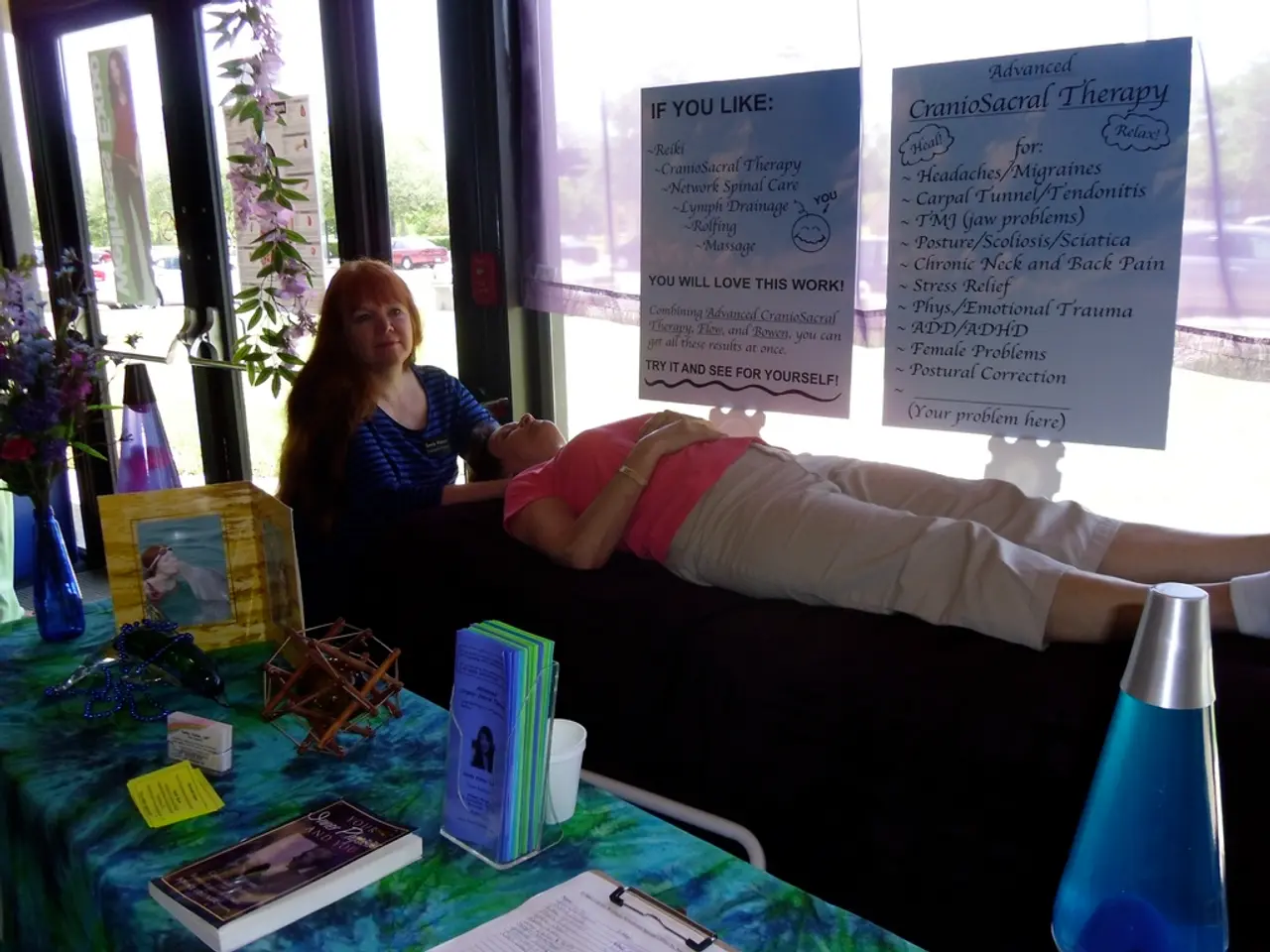Effective strategies for managing an overactive bladder
Overactive bladder (OAB) is a common condition that affects both males and females, causing a sudden, uncontrollable urge to urinate, frequent urination, and incontinence. Fortunately, effective treatment options are available, and the approach will depend on the cause and whether the person experiences incontinence.
This article explores various home remedies and lifestyle changes that can help manage OAB symptoms.
**Dietary and Herbal Remedies**
Amla juice with honey and banana, sesame seeds mixed with jaggery, tulsi leaves, cumin tea, and reetha (soapnut) are some natural remedies that may provide relief from frequent urination. Consuming these mixtures or foods regularly can help clear the bladder, tone bladder muscles, regulate bladder functions, and prevent urinary tract infections.
**Hydration and Food**
Drinking plenty of water throughout the day is essential to flush the bladder and avoid dehydration. Incorporating water-rich foods like bananas, berries, legumes, watermelon, and oranges can also help maintain hydration. While unsweetened cranberry juice may help reduce urinary tract infections, the evidence is mixed.
**Lifestyle Changes**
Bladder training, weight loss, physical activity, quitting smoking, and reducing salt intake are essential lifestyle changes that can help manage OAB symptoms. Bladder training involves resisting the urge to urinate to train the bladder to hold more urine. Scheduling voiding and gradually delaying urges can help extend intervals between bathroom visits. Losing excess weight and avoiding prolonged sitting can reduce pressure on the bladder, while quitting smoking and lowering sodium intake can improve symptoms.
**Pelvic Floor Muscle Exercises (Kegels)**
Strengthening pelvic muscles through regular Kegel exercises can significantly reduce urinary leaks and urgency by improving bladder control.
These remedies can provide symptom relief, but it is advisable to consult a healthcare professional for proper diagnosis and treatment, especially if symptoms persist or worsen. Home remedies, medication, surgery, nerve stimulation, and a doctor's guidance are options for treating OAB. Keeping a log of urinary habits and symptoms for about a week can help a person understand what helps and what makes their symptoms worse, and can aid in explaining the issues to a doctor.
A doctor may prescribe antimuscarinics such as oxybutynin (Ditropan) or tolterodine (Detrol) for OAB or incontinence. Weight management can help relieve symptoms of OAB, as obesity is a risk factor. For people who primarily have a problem with urinating at night, a doctor may prescribe a diuretic to take in the late afternoon.
Incontinence products like pads, pants, handheld urinals, catheters, and leakage prevention devices can help manage symptoms of OAB if the person experiences incontinence. Nerve stimulation is a promising treatment for OAB, especially for those who do not respond to lifestyle changes or medication, or experience adverse effects from drugs. Biofeedback allows a person to monitor how certain actions affect their body and become more aware of what works and what to avoid.
Antidepressant medications like duloxetine (Cymbalta) may help reduce incontinence by improving muscle tone in the urethra. With a correct diagnosis, there is a good chance of finding a suitable and effective treatment option for OAB and urinary problems.
- Overactive bladder (OAB) remedies include natural solutions like amla juice with honey and banana, sesame seeds mixed with jaggery, tulsi leaves, cumin tea, and reetha (soapnut).
- Consuming cumin tea, tulsi leaves, and soapnut regularly can help manage OAB symptoms by clearing the bladder and regulating functions.
- Amla juice with honey and banana, along with sesame seeds mixed with jaggery, are natural remedies that may help reduce frequent urination.
- Bladder training is a crucial lifestyle change that can help manage OAB symptoms by training the bladder to hold more urine.
- By scheduling voiding and gradually delaying urges, a person can extend intervals between bathroom visits and manage their OAB symptoms.
- Kegel exercises, which strengthen pelvic muscles, can significantly reduce urinary leaks and urgency by improving bladder control.
- To maintain hydration, it's essential to drink plenty of water throughout the day and incorporate water-rich foods like bananas, berries, legumes, watermelon, and oranges.
- While cranberry juice may help reduce urinary tract infections, its effectiveness is mixed, so it's important to maintain a balanced approach to treatment.
- For obese individuals, weight loss can help relieve symptoms of OAB by reducing pressure on the bladder.
- A doctor may prescribe antimuscarinics like oxybutynin (Ditropan) or tolterodine (Detrol) for OAB or incontinence, depending on the case.
- For people who primarily have a problem urinating at night, a doctor may prescribe a diuretic to take in the late afternoon to help manage symptoms.
- Incontinence products like pads, pants, handheld urinals, catheters, and leakage prevention devices can help manage OAB symptoms for those who experience incontinence.
- Nerve stimulation and biofeedback can be promising treatments for OAB, particularly for those who do not respond to lifestyle changes or medication, or experience adverse effects from drugs.
- Antidepressant medications like duloxetine (Cymbalta) can help reduce incontinence by improving muscle tone in the urethra. A correct diagnosis is vital for finding a suitable and effective treatment option for OAB and urinary problems.




